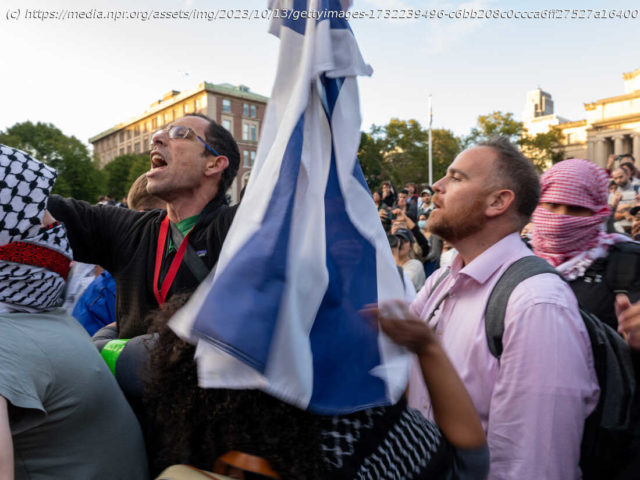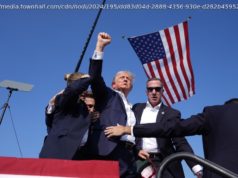The conflict has heightened tensions on U.S. campuses. What is the role and responsibility of colleges right now?
The violence in Israel and Gaza has heightened tensions on college campuses across the U.S., as students, staff, and administrators grapple with how to respond.
Pro-Israel and pro-Palestinian student groups are weighing in online and in person, with many of their statements and protests provoking strong reactions from the other side.
Take the controversy at Harvard, where dozens of student groups signed onto a letter from the Harvard Palestine Solidarity Committee (PSC) on Oct. 7 — the day Hamas launched its surprise attack on Israel — holding Israel « entirely responsible for all unfolding violence. »
The letter garnered widespread backlash from students, faculty, high-profile alumni, politicians, and even Harvard’s president. Several groups have since retracted their support of the letter, though some of their members have been doxxed.
In New York, the president of NYU’s Student Bar Association wrote that « Israel bears full responsibility for this tremendous loss of life, » in a letter to the group that quickly went viral and drew widespread condemnation. The student has since lost their law firm job offer and is in the process of being removed from their leadership role.
Student groups have also held vigils and protests, which in some cases have led to direct confrontations between pro-Israel and pro-Palestinian groups.
Protesters clashed at schools, including the University of North Carolina at Chapel Hill and Indiana University, in recent days. Columbia University closed its campus to the public on Thursday due to safety concerns over two planned student protests, a day after an Israeli student was allegedly assaulted with a stick outside its library.
Some university administrations have been more vocal than others, with their comments — or lack thereof — further stirring up emotions.
Some, like University of Florida President Ben Sasse, have issued statements strongly supporting Israel and Jewish students. Others, like Vanderbilt University and Ohio State University, have been more neutral.
And certain schools haven’t weighed in at all — Stanford University’s statement stressed its policy of neutrality, while Northwestern University’s president announced he won’t be releasing an official statement on the school’s position on this or other geopolitical issues going forward.
How exactly should colleges be responding to this current moment, both to support students’ rights and protect their safety? It’s a complicated question, experts tell NPR.
Eboo Patel, the founder and president of Interfaith America — an organization that works with nearly 1,000 campuses on interfaith issues — described a phone call he got from a college president who was worried that a peaceful vigil could turn violent.
His response was that colleges need to be two things right now: communities of care and cooperation. People are hurting, he adds, and words matter.
« We’re not going to minimize the conflict, we’re simply going to say that we are not going to allow the conflict to prevent us from cooperating on other things, » Patel says. « That’s the genius of American college campuses.
Home
United States
USA — mix U.S. students are clashing over the Israel-Hamas war. What can colleges do?






